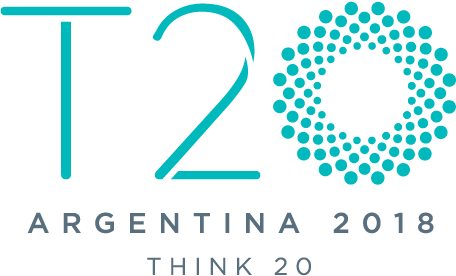By Gala Díaz Langou. Co-chair of the Gender Economic Equity task force.
The issues of physical violence against women and lack of access to sexual and reproductive rights have given international visibility to the gender agenda in the last few years. Yet a third issue, closely related to the previous two, is slowly becoming more relevant: the economic rights of women.
All around the world, women’s poverty rates are often higher than men’s. As household chores fall on women, it is more difficult for them to go look for a job. And when they actually manage to do so, their integration into the labor market is more precarious: they get jobs in less dynamic sectors of the economy, are paid less than men for the same work and show higher rates of unemployment and informal employment.
Given its crucial role in the global economy, the G20 has vast potential for contributing to gender equality in this regard. Increasing women’s labor force participation was one of the goals set by the 2014 multilateral forum – the leaders agreed to aim to reduce the gap in labor force participation rates between men and women by 25% by 2025. Since then, the topic has grown in stature in the G20 thanks to the creation of an engagement group focused on women’s economic empowerment: the Women 20 (W20).
In spite of these efforts, the latest World Economic Forum report on gender gap shows that the situation of women deteriorated in 2016. If the trend continues, gender equality will not be achieved for another 170 years. Furthermore, this trend shows that the speed at which the gender gap in labor force participation is being bridged has slowed down since 2008. In Argentina, only 56% of women are economically active (compared to 81% of men).
Women’s poorer working conditions negatively affect their economic empowerment and hinder the full exercise of their rights. They also represent a major obstacle to a country’s growth, sustainability and greater productivity. This is particularly true for countries like Argentina with no ageing population problems that can benefit from the fact that the number of economically active population is higher than that of people who depend on the income generated by the former. Improving and increasing women’s labor force participation will be key to successfully address the issue of demographic ageing.
In order to attain the goal set by the G20, countries will need to implement effective and innovative solutions. To that end, the Think 20 (T20), the G20 engagement group made up by think tanks, will address the issue during Argentina’s presidency. It will systematize the lessons learned and carry out rigorous research to inform the multilateral forum decision-making process. By promoting the horizontal exchange of evidence-based ideas, the T20 is able to make relevant and feasible public policy proposals to overcome those challenges.
In his G20 presidency takeover speech, the Argentine president Mauricio Macri recognized the importance of making progress in this regard. Bridging the economic gender gap is central to women’s rights and to the development of countries, as this policy contributes both to equality and to growth. It is high time the G20 translated its debate into concrete action. And the T20 will support the process.
